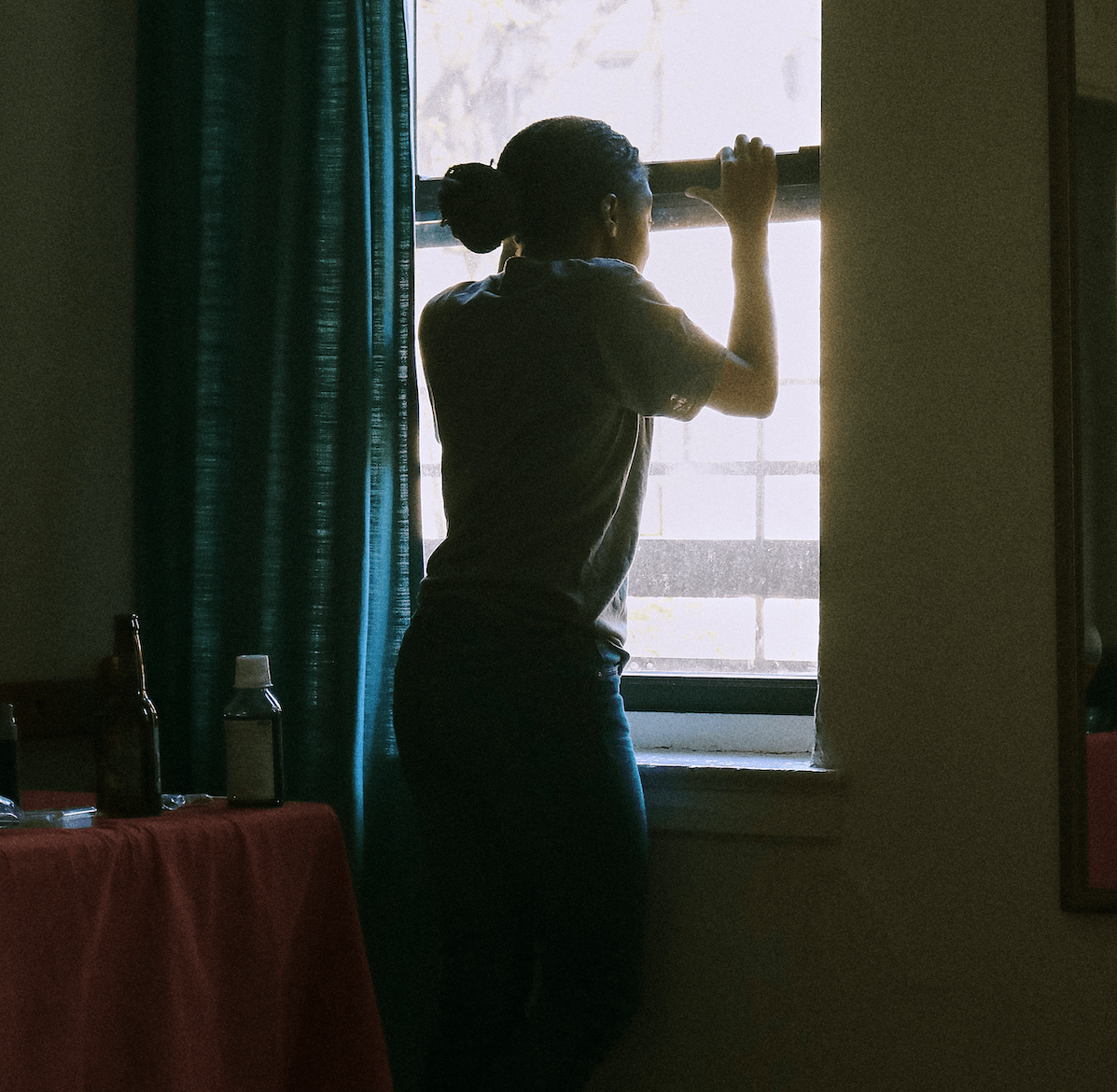Written by Lauren Cottrell.
Art by Kaia Burke.
I’ve stopped being surprised that despite my best effort to mind my own business, men (generally white men) seem to see my existence as something to be toyed with. Whether I’m walking to work, about to enter the psychiatric hospital(!), clubbing with friends, or taking driving lessons, I count as nothing when measured against their sexuality. This has been particularly obvious during the covid-19 pandemic.
Just over a month into the government enforced lockdown I gave my first ever police report: while I was on my daily walk and minutes from my house, a man began to masturbate to me as we walked past each other. Not wanting to turn back home (I’d then be going in the same direction as him) I kept on walking, it was a bright day and my sunglasses gave me cover as I cried and meandered around the suburbia.
Two weeks earlier, a couple of men who were sitting at a bus stop across the road repeatedly yelled “dirty slag” at me, only stopping when I was out of earshot. This was even closer to my home- the bus stop is one I often use.
Like a lot of young women, I am frequently subjected to harassment, men will yell sexual favours out of cars at me, or in one case stop their lorry and cause a small traffic jam because they refused to stop staring at me. The incidents detailed above were striking due to their severity but also because with the country in lockdown, there were no other people in sight, I was alone with the perpetrators, my own safety balanced on the whim of a man’s emotions.
A few days after I filed the report I had a phone call with a policeman who went through my form, confirming details with me and at times asking for more information. He queried my decision to tick the box to assert that I felt targeted. He was disbelieving when I told him that I am treated to this kind of attention every few weeks, asking “So this happens 12 times a year? So if we say it began when you were 18 it’s happened 48 times?” I listed recent incidents and he was overly keen to point out to me that most of my experiences were not crimes, just unpleasant. These things may have happened in different places, have involved different people, and they may not all have been crimes but with each time that I am the subject, how do I avoid feeling that I am being targeted? It seemed he had completely misjudged his job- we were both aware of how unlikely it was that the offender would be caught so surely his role was to be supportive rather than critical. His response disappointed me but it was not unexpected.
The incidents detailed above were striking due to their severity but also because with the country in lockdown, there were no other people in sight, I was alone with the perpetrators – my own safety balanced on the whim of a man’s emotions.
My experiences are not atypical, the results of a survey produced by Plan International UK show that 18% of girls and young women have noticed a worsening of street harassment during lockdown. It also found that 28% of those surveyed felt less safe outside than they did prior to the lockdown. This, at a time when we are all dealing with an unexpected loss of control, in the immediate sense of friends and family being made inaccessible, and of not having things to look forward to, but also of being bombarded with death tolls, with ineffective and selfish governments, and ill equipped hospitals. Sexual harassment contributes to an overwhelming sense of powerlessness and loss of bodily autonomy in the victim. It reminds me that to a lot of men, I am an object to be dismissed or considered based on my perceived attractiveness.
My experiences are not atypical, the results of a survey produced by Plan International UK show that 18% of girls and young women have noticed a worsening of street harassment during lockdown. It also found that 28% of those surveyed felt less safe outside than they did prior to the lockdown.
Despite the generosity illustrated through donations of PPE to hospitals, discounts given to key workers, and shopping done for those in isolation, there has been a background of selfishness marked by the hoarding of groceries. The reported increase in street harassment feels like another avenue that this kind of individualism has taken, in which the offender prioritises his own desires or entertainment ahead of the victim’s personhood.
I hope the men who harass lack any sense of social awareness, that they have no idea of the consequences of their actions. I hope they are selfish and unthinking, rather than deliberately trying to harm, but for me and many others these kinds of episodes recall being sexually assaulted and they do harm. Each time they happen I am shown that they don’t think I deserve to feel safe in my neighbourhood.
For all the upset the Me Too and the Times Up movements caused, I haven’t noticed any difference between how I was treated before them and how I am treated now. I was optimistic that their impact would not be restricted to the film industry or the workplace. Indeed, in the wake of these movements, some men claimed they had become reluctant to talk to women for fear they might be accused of sexism, but my experience and the experiences of other young women during the lockdown speak against this.
About the Author
Lauren Cottrell is a philosophy queen from London who often works in retail and will start an MA in English Literature in September. When she’s not doing crosswords and watching black and white films she likes to tell other white people about the racism involved in the British Raj.

